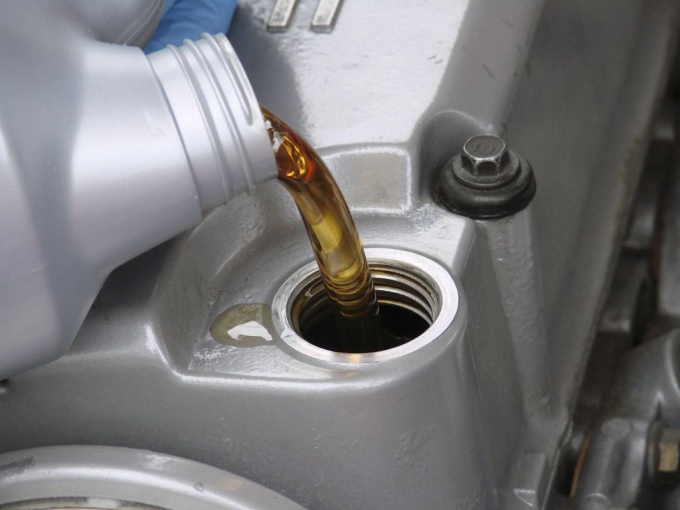Instruction
1
Engine oil is selected by a number of parameters. First and foremost is to read the manual of your car. There are detailed class, viscosity and type of oil suitable for your engine, taking into account the climate zone and the total mileage of the car.
2
First and foremost, you should pay attention to the type of engine, gasoline or diesel. The specifics of each of these engines requires a certain type of oil. Mark type of engine is usually available on the container with oil.
3
The second parameter is the composition. Oils are mineral, semi-synthetic and fully synthetic. They differ in price and performance. In General, the type of oil is a matter of taste. However, it is worth considering the mileage and what oil was poured into the engine earlier. If you have engine worked on "mineral water", cracks in the rubbers and seals were clogged with sediments that are not washed out with mineral oil. And after pouring "synthetic", because of its greater acidity, useful deposits are washed away and oil starts to ooze from the damaged seals. Fully synthetic oil is recommended to pour into new engines of cars, but older cars frequently changed "mineral water". In addition, there is a compromise solution – polysynthetic. Such oils differ from synthetic a lesser price and are superior to mineral characteristics.
4
The next important parameter is the viscosity. We used to see type designation SAE 5 w 40, what they mean and which is better? 5 w is a low viscosity, which means that cold start possible at temperatures below -35C (that is, from the numbers before the w are required to take 40). This parameter does not affect the operation of the engine in the heated condition. The second digit is high temperature viscosity, and its meaning is not as simple as the first. It is a modular indicator that indicates minimum and maximum viscosity of the oil at operating temperatures of 100-150C. It is believed that the higher the viscosity at high temperatures – the better. More viscous oil is normally recommended for racing cars, but this does not mean that if you add a racing oil in a regular engine, you will get a performance boost. On the contrary, you will get a loss of power and rapid wear of the motor. The main rule when choosing oil viscosity: follow the manufacturer's recommendations. Never pour oil, the viscosity of which is not specified by the manufacturer as the recommended! If you choose from the range of acceptable, the more viscous oil is better for more worn engines.
5
As for brands of oil, the choice of a specific brand – a purely personal matter and depends on preferences, recommendations of friends and experts and advertising companies. Each automobile company usually has a list of recommended brands of oils that passed the corresponding tests and are shown for use in specific engines. List of tolerances, among other information, can be found on the reverse side of the oil container. Allowed in addition, there are the so-called original oil. Authorized service centers, usually, it is recommended to use only original oil.
Note
Never pour oil, the viscosity of which is not marked by the manufacturer as recommended.
Useful advice
In the instruction manual, check the list of recommended parameters of motor oil.
